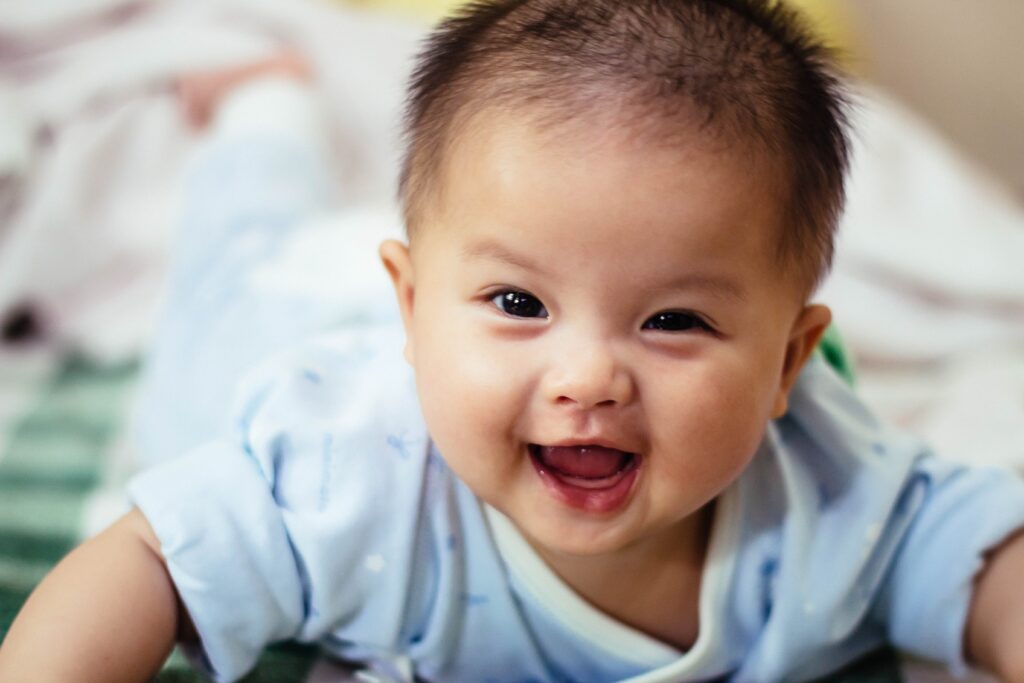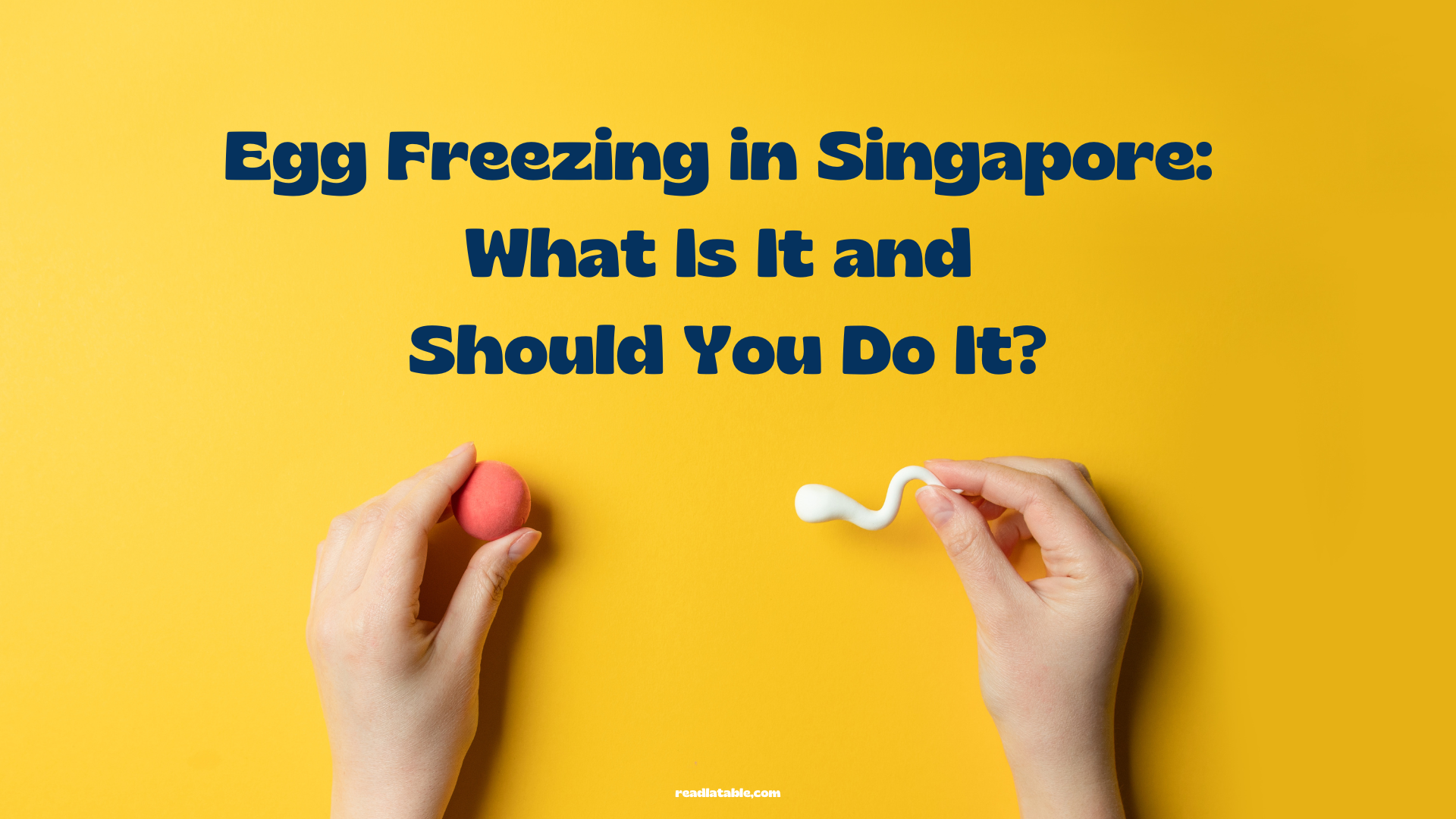If you’re a woman in Singapore who’s considering having children in the future but isn’t quite ready yet, you may have heard of egg freezing.
This is a process where a woman’s eggs are extracted and frozen for later use, typically when she’s ready to start a family. But what exactly is egg freezing, and should you consider doing it?
Egg freezing, also known as oocyte cryopreservation, is a medical procedure that involves extracting a woman’s eggs and freezing them for later use.
The process typically involves taking hormones to stimulate egg production, followed by a minor surgical procedure to extract the eggs. Once the eggs have been extracted, they’re frozen and stored until the woman is ready to use them.

Source: Unsplash
There are many reasons why a woman might consider egg freezing. Perhaps she wants to travel and does not want to start a family, but wants to ensure that she has the option in the future. Or maybe she’s undergoing medical treatment that could affect her fertility and wants to preserve her eggs before starting treatment.
Whatever the reason, it’s important to understand what egg freezing involves and whether it’s the right choice for you.
What Is Elective Egg Freezing?
Elective egg freezing is a medical procedure that involves extracting and freezing a woman’s eggs for future use. In Singapore, egg freezing for non-medical reasons is legal and available for women who wish to preserve their fertility.

The procedure involves taking fertility drugs to stimulate the ovaries to produce multiple eggs, which are then retrieved through a minimally invasive procedure under sedation. The eggs are then frozen and stored in a laboratory until the woman is ready to use them.
While elective egg freezing is not a guarantee of pregnancy, it can increase the chances of successful conception in the future. The success rate of the procedure depends on various factors, such as the age of the woman when the eggs were frozen and the number of eggs retrieved.
Should I Do Elective Egg Freezing?
Elective egg freezing is a personal decision that requires careful consideration. Here are some factors to consider when deciding whether to freeze your eggs:
| Age | The best time to freeze eggs is before the age of 35. After age 35, a woman's fertility begins to decline rapidly. Therefore, if you are planning to have children in the future, it is important to consider freezing your eggs at a younger age. |
| Career Goals | If you are focused on your career and are not ready to start a family, elective egg freezing may be a good option for you. It allows you to delay motherhood until you are ready, without worrying about age-related fertility decline. |
| Health | Elective egg freezing is a safe procedure, but it does carry some risks. Before deciding to freeze your eggs, you should discuss your medical history with a doctor and ensure that you are healthy enough to undergo the procedure. |
| Cost | Elective egg freezing can cost from S$18,000. Furthermore, you have to include the cost of storing the eggs, which amounts to ~$500 / year. Make sure that this is something you can afford in the long term before proceeding |
Overall, the decision to freeze your eggs is a personal one that should be made after careful consideration of your age, career goals, health, and financial situation.
Where Can I Get Egg Freezing Procedure Done in Singapore?

Source: Canva
You can do egg freezing at certain hospitals and fertility clinics in Singapore. Each cycle is estimated to cost between $7,000 – $30,000, depending on whether you do it at a public hospital or a private clinic.
Below is a list of hospitals and private clinics you can opt for if you are considering egg freezing:
How much does it cost to do egg freezing in Singapore?
| Hospital / Clinic | Estimated Cost per Egg Retrieval Cycle (IVF) | Cost to store frozen eggs at hospital |
|---|---|---|
| KKH Women's and Children's Hospital | S$7,000 - S$9,000 | S$500 / year |
| National University Hospital Clinic for Human Reproduction (CHR) | $8,000 to $12,000 | Not Disclosed |
| Thomson Fertility Centre | $15,000 - $20,000 | Not Disclosed |
| Singapore General Hospital Center for Assisted Reproduction (CARE) | $10,000 - $15,000 | Not Disclosed |
| Virtus Fertility Centre | S$10,000 - S$15,000 | S$900 / year |
| Raffles Fertility Centre | $20,000 - $25,000 | Not Disclosed |
| Mount Elizabeth Fertility Center | $25,000 to $30,000 | Not Disclosed |
The above list is not exhaustive and is updated as of 12 August 2023.
Are There Any Government Subsidies for Egg Freezing in Singapore?
Source: Canva
Under the Marriage and Parenthood Scheme, couples can opt to co-fund their Assisted Conception Procedure at a public Assisted Reproductive center.
This will allow couples to receive up to 75% in co-funding from the Government.
Eligibility Criteria:
- You are below 40 years of age at the start of the cycle (except for the last two cycles for couples where the wife had previously attempted an Assisted Reproductive Technology (ART)/Intra-Uterine Insemination procedure before age 40);
- You have not already received three co-funded fresh and three co-funded frozen cycles in the past;
- You have been assessed by a doctor to fulfill clinical requirements for any ART;
- You or your spouse must be a Singapore Citizen at the start of the ART cycle.
| Both Singapore Citizens | 1 Singaporean, 1 PR | 1 Singaporean, 1 Foreigner | |
|---|---|---|---|
| Fresh Assisted Reproduction Technology cycles | 75%; up to $7,700 | 55%; up to $5,700 | 35%; up to $3,600 |
| Frozen Assisted Reproduction Technology cycles | 75%; up to $2,200 | 55%; up to $1,600 | 35%; up to $1,000 |
Source: Ministry of Health
How much can I claim from MediSave?
Both husband and wife can claim up to $6000, $5000 and $4000 from Medisave for their first, second and subsequent cycles of IVF (for egg retrieval) respectively, subject to the lifetime cap of $15,000.
Other Considerations and Frequently Asked Questions about Egg Freezing
Source: Canva
Does elective egg freezing carry any risks?
Women should be aware that egg freezing is an invasive procedure and there are surgical risks, such as risks of bleeding or infection, though the risk of infection is relatively low.
While a woman’s frozen eggs do not age, a woman’s aging can cause the risk of developing medical conditions such as fibroids, endometriosis, high blood pressure, and diabetes, which may affect a pregnancy later on in life.
Is egg freezing a one-time procedure that can cover all future pregnancies?
According to CNA, if a woman wants to have a second child, the frozen eggs from one egg retrieval cycle are usually not successful. A woman could go for two or three egg retrieval cycles to “bank” more healthy eggs for future use, ideally with 20 frozen eggs in the bank.
What are the legal requirements for egg freezing in Singapore?
The legal requirements for egg freezing in Singapore include obtaining a license from the Ministry of Health (MOH) and complying with the regulations set by the MOH. As of 2023, the age limit for elective egg freezing in Singapore has been raised from 35 to 37 years old. Women who wish to freeze their eggs must also undergo counseling and provide informed consent before proceeding with the procedure.
What is the average cost of egg freezing in Singapore?
The average cost of egg freezing in Singapore ranges from $8,000 to $12,000. This cost includes the initial consultation, hormone injections, egg retrieval, and the first year of storage. However, the cost may vary depending on the clinic and the number of eggs that are being frozen.
What are the potential side effects of egg freezing?
The potential side effects of egg freezing include mild to moderate discomfort, bloating, and cramping. There is also a small risk of infection or bleeding during the egg retrieval process. However, these risks are generally low, and most women recover within a few days.
What is the age limit for elective egg freezing in Singapore?
As of 2023, the age limit for elective egg freezing in Singapore has been raised from 35 to 37 years old. This comes after a recent review of local and international evidence showed that success rates of egg freezing remain relatively stable for women up to 37 years old.
How many eggs can typically be frozen at age 35?
The number of eggs that can be frozen at age 35 varies from woman to woman. On average, women at this age can expect to freeze around 10 to 15 eggs per cycle. However, the number of eggs that are retrieved and frozen may depend on factors such as the woman’s age, ovarian reserve, and response to fertility medications.
Curious about the latest news on Elective Egg Freezing? Read more from the web!



